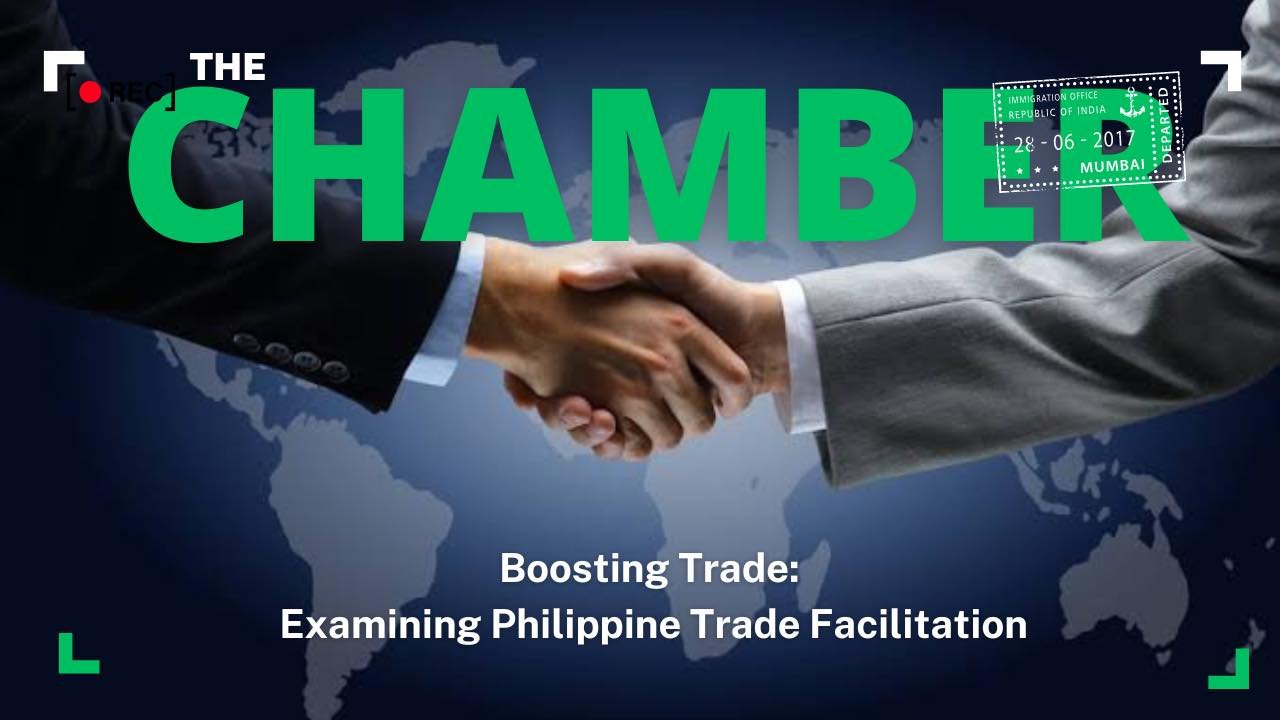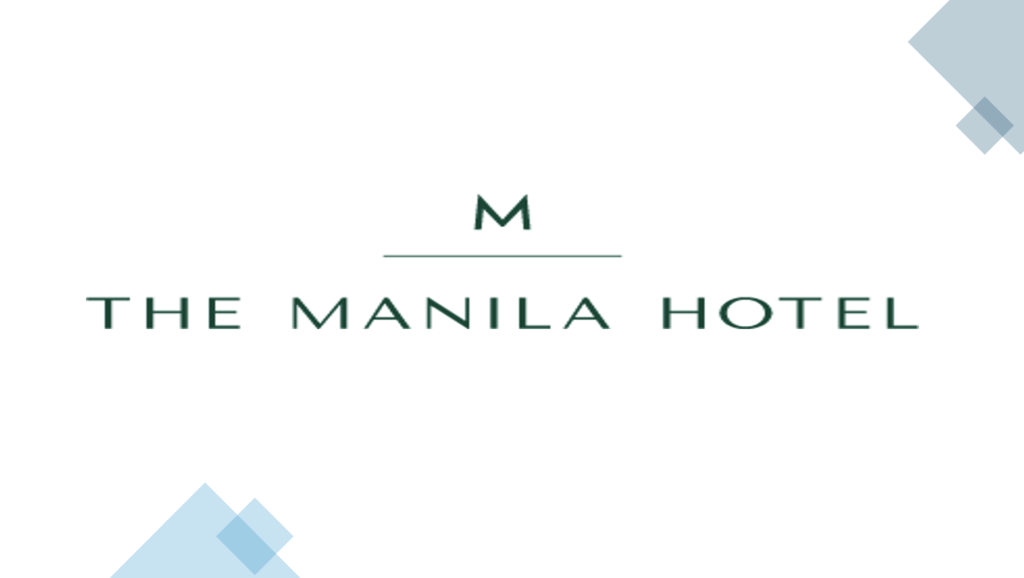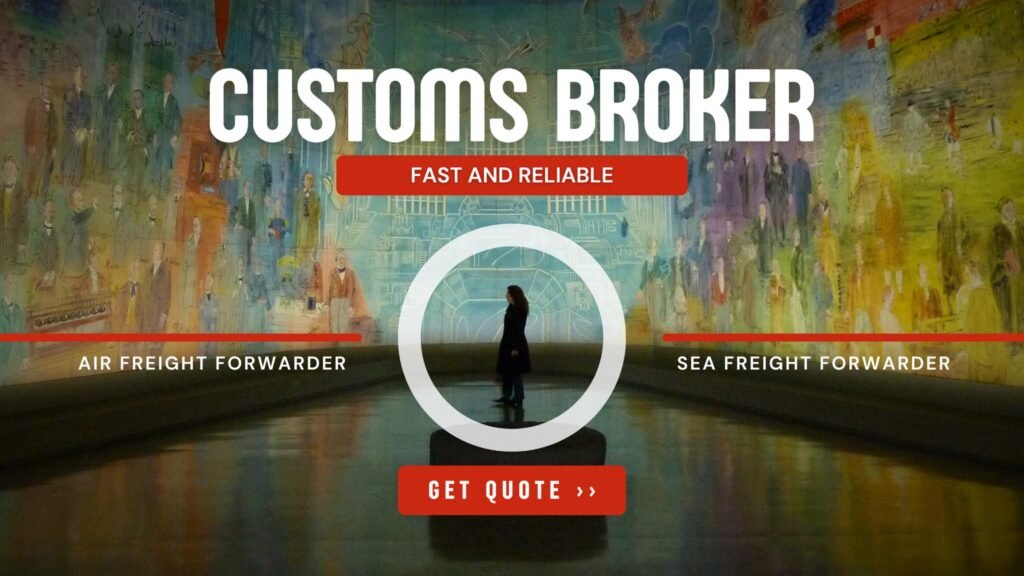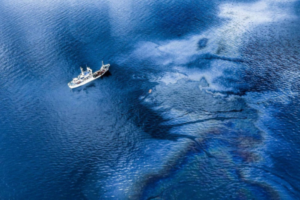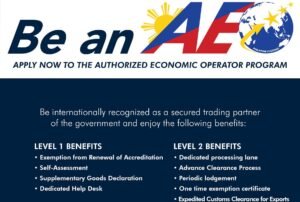Efficient customs procedures play a pivotal role in fostering international trade and economic growth. Recognizing this, governments around the world, including the Philippines, have implemented various trade facilitation initiatives and programs. These initiatives aim to streamline customs procedures, reduce processing times, and enhance the overall trade environment.
Trade facilitation in the Philippines involves simplifying and improving international trade processes, policies, and infrastructure. This aims to reduce barriers, enhance customs procedures, and promote efficient logistics. The country actively implements measures to boost competitiveness and attract investments, including electronic customs systems and infrastructure enhancements. Participation in international agreements further aligns trade procedures and standards. These efforts are vital for driving economic growth, boosting trade, and integrating the Philippines into the global economy.
Authorized Economic Operator (AEO)
The Authorize Economic Operator (AEO) program is a flagship initiative of the Bureau of Customs (BOC) in the Philippines. It is designed to enhance supply chain security and facilitate trade by recognizing operators that meet specific security and compliance standards. Under the AEO program, certified operators, including importers, exporters, customs brokers, and logistics providers, are granted certain benefits and privileges, such as simplified customs procedures, priority clearance, and reduced inspection rates.
Key Components of the AEO Program:
1. Security Standards: AEO certification entails meeting stringent security criteria to safeguard the international supply chain against potential risks, including terrorism, smuggling, and theft. Certified operators are required to implement robust security measures and protocols throughout their supply chain operations.
2. Compliance Requirements: In addition to security standards, AEO certification also entails demonstrating compliance with customs regulations, tax laws, and other relevant legislation. Certified operators must maintain accurate records, submit timely declarations, and cooperate with customs authorities to ensure transparency and compliance.
3. Benefits and Privileges: Certified AEOs enjoy a range of benefits aimed at facilitating trade and reducing administrative burdens. These benefits may include expedited customs clearance, reduced inspection rates, access to dedicated lanes or facilities, and preferential treatment during customs audits and verifications.
Subscribe to the MyCCBI365 newsletter
Other Trade Facilitation Initiatives
Apart from the AEO program, the Philippine government has instituted various other trade facilitation initiatives and programs to bolster the efficiency and competitiveness of its trade environment. These measures might comprise:
1. Single Window System: The Philippine National Single Window (NSW) is an electronic platform enabling traders to submit regulatory documents and secure permits or clearances from multiple government bodies through a single online portal. This system streamlines customs processes, reduces paperwork, and expedites goods clearance.
2. Customs Modernization and Tariff Act (CMTA): Enacted in 2016, the CMTA brought significant reforms to modernize customs operations and align them with global standards. The legislation aims to simplify customs clearance, enhance transparency, and minimize bureaucratic hurdles, thereby fostering trade facilitation and improving the ease of doing business.
3. Trade Information Portals: The Philippine government has established online platforms like the BOC website and the Philippine Trade Information Network (PTIN) to furnish traders with access to customs procedures, tariff details, trade regulations, and import-export documentation. These portals serve as valuable resources for traders, enabling them to stay informed and navigate customs clearance more efficiently.
Customs Trade Facilitation initiatives' future
The outlook for trade facilitation in the Philippines appears promising, with ongoing endeavors focused on enhancing efficiency and competitiveness in global trade. Key factors influencing the future of trade facilitation in the nation include:
1. Advancements in Digitalization and Automation: Continued investment in digitalizing and automating customs processes is anticipated. This involves expanding the utilization of electronic platforms for document handling and processing, thereby reducing paperwork and processing durations.
2. Improvements in Connectivity and Infrastructure: Infrastructure enhancements, particularly in ports and transportation networks, will be pivotal in advancing trade facilitation. Investments in modernizing infrastructure are poised to streamline the flow of goods and diminish logistics expenses.
3. Potential Trade Policy Reforms: The Philippines may pursue further reforms in trade policies to align with global standards and agreements, fostering a more open and competitive trade environment. Such reforms might encompass simplifying trade regulations, lowering tariffs, and enhancing trade-related services.
4. Focus on Capacity Building and Institutional Strengthening: Efforts to bolster the capacity of customs officials and other trade-related agencies will persist. This includes initiatives such as training programs, knowledge-sharing endeavors, and investments in technology and human resources to enhance trade facilitation capabilities.
5. Emphasis on Partnerships and Collaboration: Collaboration with international organizations, neighboring nations, and private sector entities will remain pivotal. This entails sharing best practices, harmonizing trade protocols, and collectively addressing emerging trade facilitation challenges.
Conclusion: Trade facilitation initiatives and programs play a crucial role in promoting economic development and competitiveness in the Philippines. By streamlining customs procedures, reducing processing times, and enhancing supply chain security, these initiatives contribute to a more efficient and conducive trade environment. Traders and businesses in the Philippines are encouraged to leverage the benefits of programs like the AEO program and other trade facilitation measures to optimize their operations, minimize costs, and capitalize on opportunities in the global marketplace.
Prof. Rod Villanueva, eMba, Lcb
